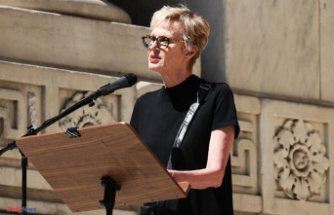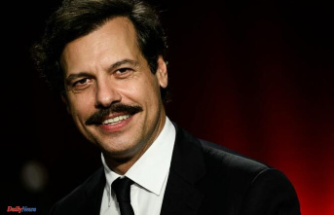Energy costs are a burden on consumers and the economy. The big end is yet to come when it gets colder. Politicians want to counteract this with a gas price brake - but first it is a group of experts' turn.
The gas price brake is supposed to be one of the federal government's central rescue tools in the energy crisis - millions of consumers and companies are desperately waiting for details. It should be concrete on Monday. Then Chancellor Olaf Scholz expects the results of an expert commission. A government spokesman announced that the government would deal with it "immediately and intensively". How and when the public should be informed was still unclear on Friday.
The chairmen of the commission - which includes representatives of associations, trade unions and energy experts - had declared that they would work out a "resilient proposal" for a gas price brake over the weekend and then submit it to politicians. After that, the government must act quickly, said the head of the Federal Association of Consumer Centers, Ramona Pop, of the German Press Agency. "People expect the price brake to be effective and unbureaucratic." Above all, those who have their backs to the wall financially should benefit.
What criteria apply to the planned brake?
The experts have to reconcile a few conflicting principles. On the one hand, it should be quick, on the other hand fair and practicable - and given the high prices and impending shortages, incentives to save gas must not be lost. The President of the German Institute for Economic Research, Marcel Fratzscher, also warns: "Politicians will be able to subsidize gas prices and energy for 18 or 24 months. After that, companies and people will have to be able to stand on their own two feet again."
What hurdles are there for the implementation of such a brake?
The energy industry and municipal utilities warn against overly complex regulations. It is a mass market with automated processes, warns the head of the energy industry association BDEW, Kerstin Andreae. It's about 20 million households and a very large number of contracts with companies and industry. The suppliers made changes "not at the push of a button". A spokeswoman for the Association of Municipal Companies (VKU) emphasizes from the point of view of the municipal utility: "Better simple, quick and effective - hyper-fair is complicated and takes too long." She warns: "A bonus that nobody understands, that doesn't work in time or even fails to be implemented, would be a disaster."
Which models are conceivable?
What is the current situation with the gas supply in Germany?
The German gas storage facilities are more than 90 percent full. Bundesnetzagentur boss Klaus Müller only warned yesterday, Thursday: "Gas consumption rose too much last week." According to figures from the supervisory authority, gas consumption by private households and smaller commercial customers last week was almost 10 percent above the average consumption level for the years 2018 to 2021. This is probably also due to the fact that September was comparatively cool. Germany will hardly be able to avoid a gas emergency in winter without at least 20 percent savings in the private, commercial and industrial sectors, emphasizes Müller.
Where will the money for the gas price brake come from?
From the 200 billion euro economic stabilization fund ("defence shield") announced by the federal government to relieve citizens and companies. The Federal Government is currently deliberating on a draft of the Federal Ministry of Finance for corresponding loans. In case of doubt, German taxpayers are also responsible for these expenses.
What happens after the Commission has agreed on a concept?
A last-minute agreement is likely, perhaps on Monday night. Once the Commission has presented its concept, the Federal Government must decide which way to go on the basis of the Expert Council, and in particular the Ministry of Economics and Finance and the Chancellery. Here, too, time is of the essence, because gas consumption increases with the cold season, and with it the costs for consumers and companies.












